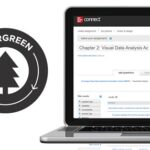COVID initiated a massive and immediate change in learning–namely, a nationwide pivot to online learning. Faced with closing physical campus classrooms, colleges and universities took quick stock of their online capabilities in order to sustain learning.
And now, with students back on campus and with lecture halls full once more, the question remains: What did higher ed learn from COVID, and what STEM teaching and learning strategies should remain in place as we creep back toward normalcy?
Make time for this eCampus News webinar featuring a panel of experts who will discuss the four categories of STEM learning and how institutions can meet the changing needs of STEM instruction on campus.
- 5 ways microcredentials help higher-ed students succeed - August 7, 2025
- As higher ed embraces AI, where is learning headed? - July 22, 2025
- Students view AI with optimism, but women are at risk of being left behind - July 7, 2025
More from eCampus News
McGraw Hill Transitions from Traditional Textbook Edition Publishing Cycle with New Evergreen™ Delivery Model
COLUMBUS, Ohio (GLOBE NEWSWIRE) — McGraw Hill announced the launch of an industry-first delivery model that releases digital product updates directly to existing courses already built by instructors, replacing the…
Future proof your career: Human-centered majors in the AI era
Walk into any classroom or workplace today, and the topic of AI comes up quickly. Some are energized by the possibilities. Others are worried about what might be lost. Most of us feel both.
WGU aims to help students, alumni highlight career-ready skills
More than 588,000 students and alumni at Western Governors University now have access to a powerful new tool to help them navigate and shape their career journeys: the WGU Achievement Wallet.
Democracy’s future and the fate of higher education
Since the founding of the United States, democracy and higher education have been deeply intertwined. The early architects of the republic recognized that democracy requires an educated citizenry capable of informed participation.
Using AI and predictive analytics to safeguard student success
Colleges and universities are navigating an increasingly complex landscape. Rising rates of anxiety, depression, and burnout are colliding with growing concerns about physical safety.
The false hope of skills-based hiring
Skills-based hiring is often floated as the big answer to the shortage of talent for open job postings and the on-ramp into meaningful careers for those without degrees.





